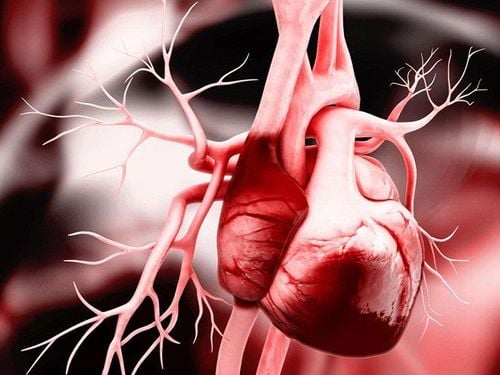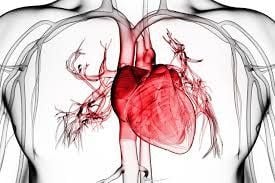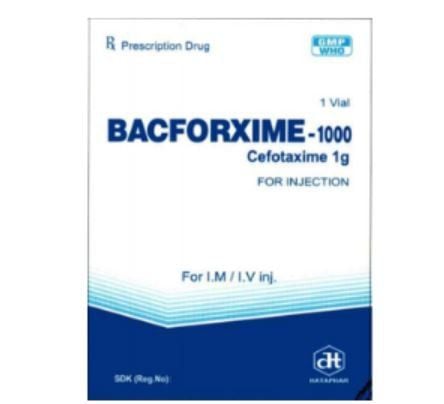This is an automatically translated article.
The article is professionally consulted by Interventional Cardiologists, Department of Medical Examination & Internal Medicine - Vinmec Hai Phong International General Hospital.Pericarditis if not diagnosed and treated early can lead to dangerous complications such as pericardial effusion with cardiac tamponade or chronic constrictive pericarditis.
1. Is pericarditis dangerous?
Pericarditis is an inflammatory and fluid-producing disease of the pericardium. The acute form of the disease is defined as inflammation lasting from about 4 to 6 weeks. The inflammatory manifestation may be fibrin (dry) or effusion with purulent, serous, sometimes hemorrhagic secretions.Pericarditis is clinically characterized by a triad of signs: chest pain, pericardial rub, and changes in the electrocardiogram. This is the most common pathology of pericardial diseases in clinical practice.
Pericarditis can cause the pericardium to scar, become thinner, and constrict the heart. When too much fluid accumulates in the pericardium, the result is a great deal of pressure on the heart, making it impossible for the heart to fully pump blood as it should. In severe cases, blood pressure can drop, which can be life-threatening.

Viêm màng ngoài tim đối với trường hợp nặng có thể nguy hiểm đến tính mạng
2. Complications of pericarditis
2.1. Pericardial effusion with or without cardiac tamponade Pericarditis has the potential to cause accumulation of permeable fluid, exudate, or blood in the pericardial sac. The pressure inside the pericardium is elevated due to the occurrence of pericardial effusion (especially in areas of fluid accumulation), which puts pressure on the chambers of the heart, leading to cardiac tamponade. This is one of the dangerous complications of pericarditis.In case of hemodynamic instability, purulent pericarditis or high suspicion of tumor, the patient should have a pericardiocentesis. Prior to this, complete drainage should be performed and fluid analysis should be performed for glucose, protein, and lactate dehydrogenase. In addition, it is necessary to check the number of cells, examine the sample under the microscope, if necessary, carry out bacterial and/or viral cultures and cytological examination.
In certain situations, a percutaneous pericardiocentesis cannot be performed and surgical drainage of the patient is required. The substernal approach in general has a complication rate of <1% and a recurrence rate of effusion of 8%. If malignancy or granulomatous disease is suspected, a pericardial biopsy should be performed for examination.

Tràn dịch màng ngoài tim là một trong những biến chứng viêm màng ngoài tim nguy hiểm
During healing, granulomatous tissue is likely to completely replace the pericardial cavity. This leads to the appearance of dense scarring, which surrounds the heart and impedes blood flow to the ventricles. In this case, surgery is needed to remove the pericardium.
Complications of pericarditis can range from mild to severe, even fatal. However, most of the reported cases are mild and can improve on their own. For more severe cases, treatment may include medication and (rare) surgery. On the other hand, early diagnosis and treatment can reduce the risk of long-term complications from pericarditis.
To help patients determine the cause, complications and grade of pericarditis, Vinmec International Hospital now has a Cardiovascular Screening Package - Basic Cardiovascular Examination, for the following subjects: Cold limbs. ; heart palpitations; Rapidly breath; Anxiety, insomnia; Shoulder, wrist pain; Unexplained fatigue; Sweating, indigestion; Swollen feet; Frequent migraine headaches; There is a feeling of tightness when walking; Family with heart disease...
Advantages of cardiovascular screening at Vinmec International General Hospital include:
Medical team - doctors are leading experts, highly qualified , devoted and wholeheartedly for the benefit of the patient, bringing high efficiency in medical treatment; Comprehensive and professional medical examination, consultation and treatment services; A system of modern equipment, supporting effective diagnosis and treatment; Modern, civilized, luxurious and sterile medical examination and treatment space.
Please dial HOTLINE for more information or register for an appointment HERE. Download MyVinmec app to make appointments faster and to manage your bookings easily.













